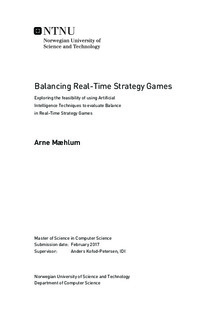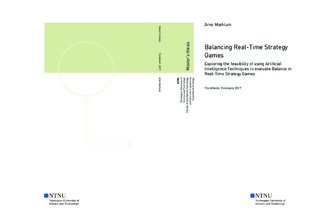| dc.description.abstract | Of the most important things when creating a good Real-Time Strategy game (RTS) is ensuring that it is balanced. When a game is \emph{imbalanced}, some strategies are given far more weight due to their disproportionate viability. Without a variation of strategies that are viable in different situations, the entire aspect of strategic planning starts to crumble.
In this paper I present a theoretical system capable of balancing an RTS, and take a small step towards the realization of such a system.
I have explored a coevolutionary approach to producing sets of viable, high-level strategies and counter-strategies for RTS games. These high-level strategies are often dubbed build orders, meaning the order in which units, structures and upgrades are produced as part of a bigger strategy. I have also explored how varying certain characteristics of a game affects the complexity of this task, and whether this approach can give insight to a game's level of balance.
The high-level strategies are evaluated through simulations in Decnalab, a minimal RTS game simulator I developed specifically for this purpose. | |

